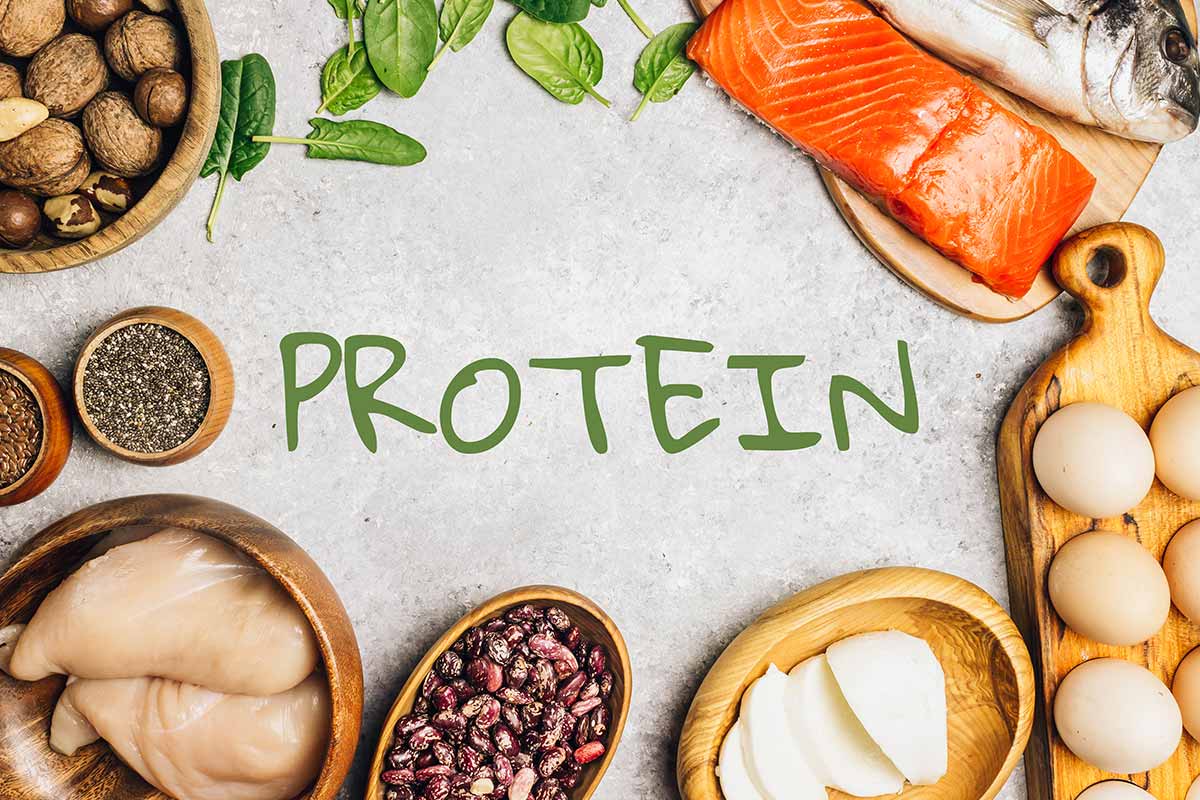How much protein do we really need? How do we get enough of it? Should we follow a high-protein diet?
Protein is found in every cell of our body and has many functions. It is involved in many chemical reactions and is an important macronutrient for putting some meat on our bones, making blood, skin, hair, enzymes and more.
To keep our body in a healthy state, the recommended dietary allowance (RDA) per day for an adult is 0.8 grams of protein for each kilogram of body weight. However, depending on our sex, age, lifestyle, frequency and intensity of physical activity, goals and other factors, an individual may need more than that. Let’s look at some important points to consider:
Although protein is an important macronutrient, the expression “the more, the better” does not apply to its daily intake. A healthy diet should consist of all 3 macronutrients which are properly balanced and designed to the individual and their personal goal.
Different people may have different goals when it comes to weight management, health and fitness. If someone is a bodybuilder, while your lifestyle is sedentary, the amount of protein requirements will be substantially different for the two of you. Your protein intake should be matching your goals, life choices, biology and other factors. Remember we are not all the same.
Protein can come from animal and plant foods. When choosing your protein, remember it comes in a package that normally includes other macronutrients or other characteristics. For example, animal protein such as beef, chicken, fish, dairy and eggs, will also include some fats. While fats are an important macronutrient, some animal protein provide high amounts of saturated fats aside from protein. Saturated fats should be consumed in moderation.
On the other hand, protein from plant sources may have a reduced bioavailability. Being aware of that and incorporating cooked veggies and grains into our food intake can help increase bioavailability.
When our goal is to maintain or lose bodyweight, whenever we increase the intake of a certain macronutrient, we should make adjustments so we do not consume more food than we require. Meaning, if you have not changed anything in your diet except increase your protein intake, you may experience some weight gain due to overconsmption of calories. Swapping foods can be a good solution in this case. For example, instead of snacking on a couple fruits, swap with a few carrot sticks and hummus dip, while maintaining a similar caloric amount.
Some people may choose to incorporate protein powder into their food intake. While such powders are a great way to supplement our diet with protein and a great solution when you are in a hurry or on the go, we should learn what is really in our powder. Such powders may come from different sources (dairy, eggs, plant-based) and can often contain other ingredients such as vitamins and minerals, thickeners, added sugars or other sweeteners, as well as artificial flavouring. When choosing a protein powder, make sure to read the nutrition and ingredient labels first and see if you are okay with the final product.
A very high-protein diet normally encourages an extremely low carb intake which may translate into overall minimal consumption of fruits and vegetables. While high-protein diets may offer certain benefits to certain people for a limited time period and under clinical supervision, studies have shown over and over again that daily consumption of enough fruits and vegetables contributes to our health in many ways and can be helpful and even preventative for many diseases.
Getting enough protein from non-animal sources is possible. Although a bit more planning may be required, achieving the protein intake requirements only through plant protein can be done. While vegetarians who eat dairy, eggs or fish can meet their protein intake requirements quite easily, vegans need to plan a bit more but can still get enough protein regularly. A common concern in some vegetarian diets or a vegan lifestyle is unintentionally creating a deficiency in certain vitamins and minerals. If you plan to become a vegetarian or vegan, a professional nutritional guidance or in-depth planning should be done to avoid such deficiencies.

